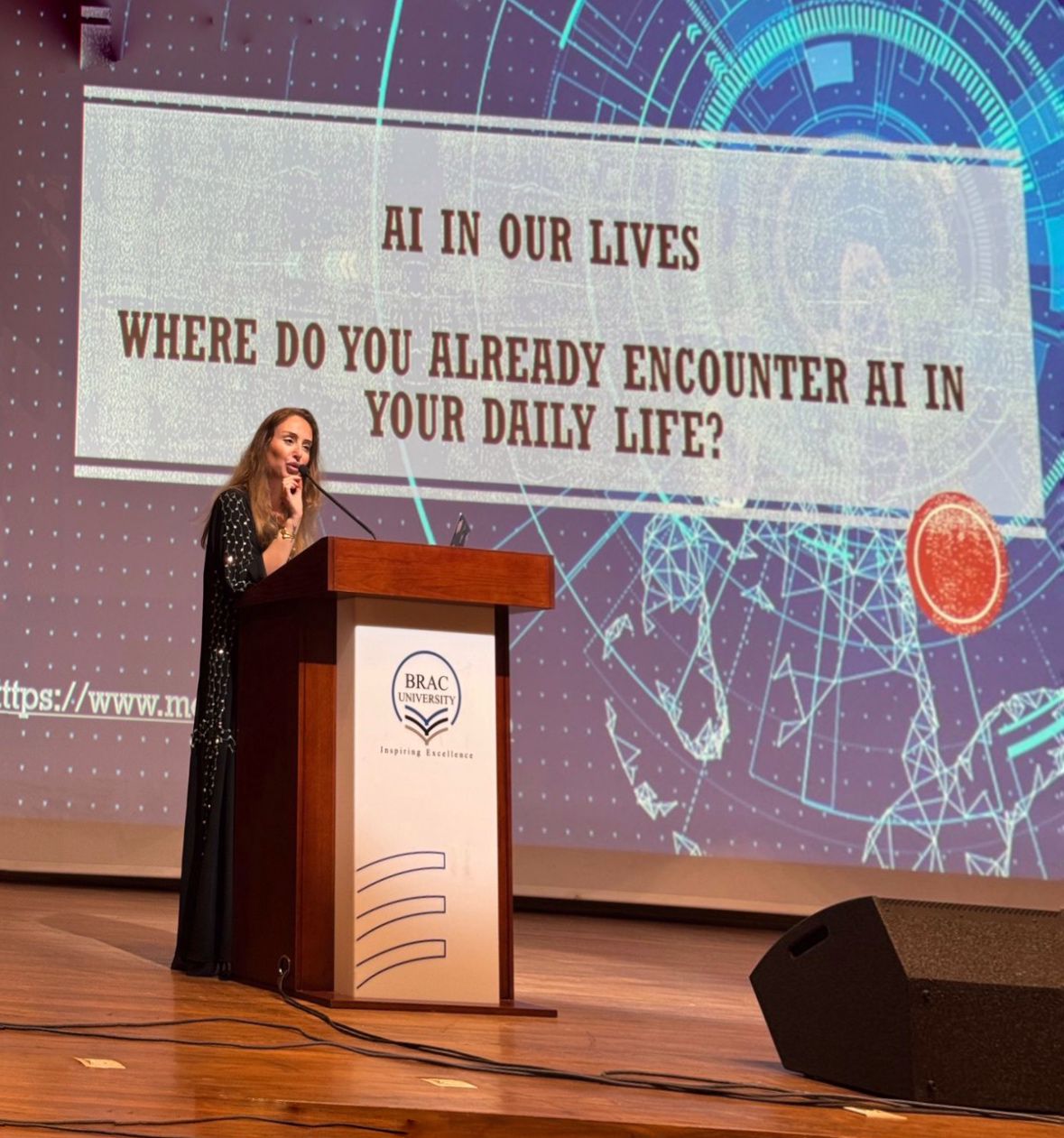BRAC University recently hosted a workshop titled “Artificial Intelligence and Digital Tools in the Teaching of Foreign Languages: Turning a Perceived Threat into a Powerful Ally” on its Merul Badda campus.
The workshop was conducted by Dr Noura El Sayed Rodríguez, an education and language specialist with over 15 years of experience in academic leadership, multilingual education, and digital innovation. Holding a PhD in multilingualism, multiculturalism, and equity studies in education from Université Saint-Joseph de Beyrouth, Dr. Rodríguez shared insights from her work across the Middle East, Asia, and Africa.
Artificial intelligence (AI), far from being a threat, holds the potential to be a valuable educational ally when used with integrity, particularly in foreign language teaching, she told the event organised by the BRAC Institute of Languages. AI tools were explored during the session, highlighting features such as real-time feedback, grammar and vocabulary support, writing assistance, and pronunciation practice.
The session also addressed the importance of normalizing the ethical use of AI in classrooms, particularly by engaging students in open discussions. Personalised learning pathways, accessible practice outside class hours, gamification, and intercultural exposure were highlighted as major benefits of AI in language education.
Participants, including language teachers from across the country, program coordinators, and digital learning enthusiasts, discussed the challenges of students using AI tools, particularly the difficulty in identifying when and how AI is being used inside and outside the classroom. This raised concerns about academic integrity and the need for clearer guidelines. They participated in interactive exercises, which involved linking specific educational obstacles, such as difficulty with motivation, pronunciation, or grammar, to relevant AI tools that could aid learners.
They also reflected on widespread myths versus realities of AI, helping to dispel fears and build a more realistic understanding of its capabilities and limitations.
This encouraged educators to think critically about how to responsibly and effectively integrate AI into their teaching.
In her closing remarks, Dr. Rodríguez recommends that educators take an interest in the AI tools their students prefer to gain deeper insight into their learning processes.
This helps teachers integrate relevant tools into their teaching, making lessons more effective and aligned with students’ digital experiences. Encouraging this dialogue also promotes responsible, ethical use of AI in the classroom, she said.


